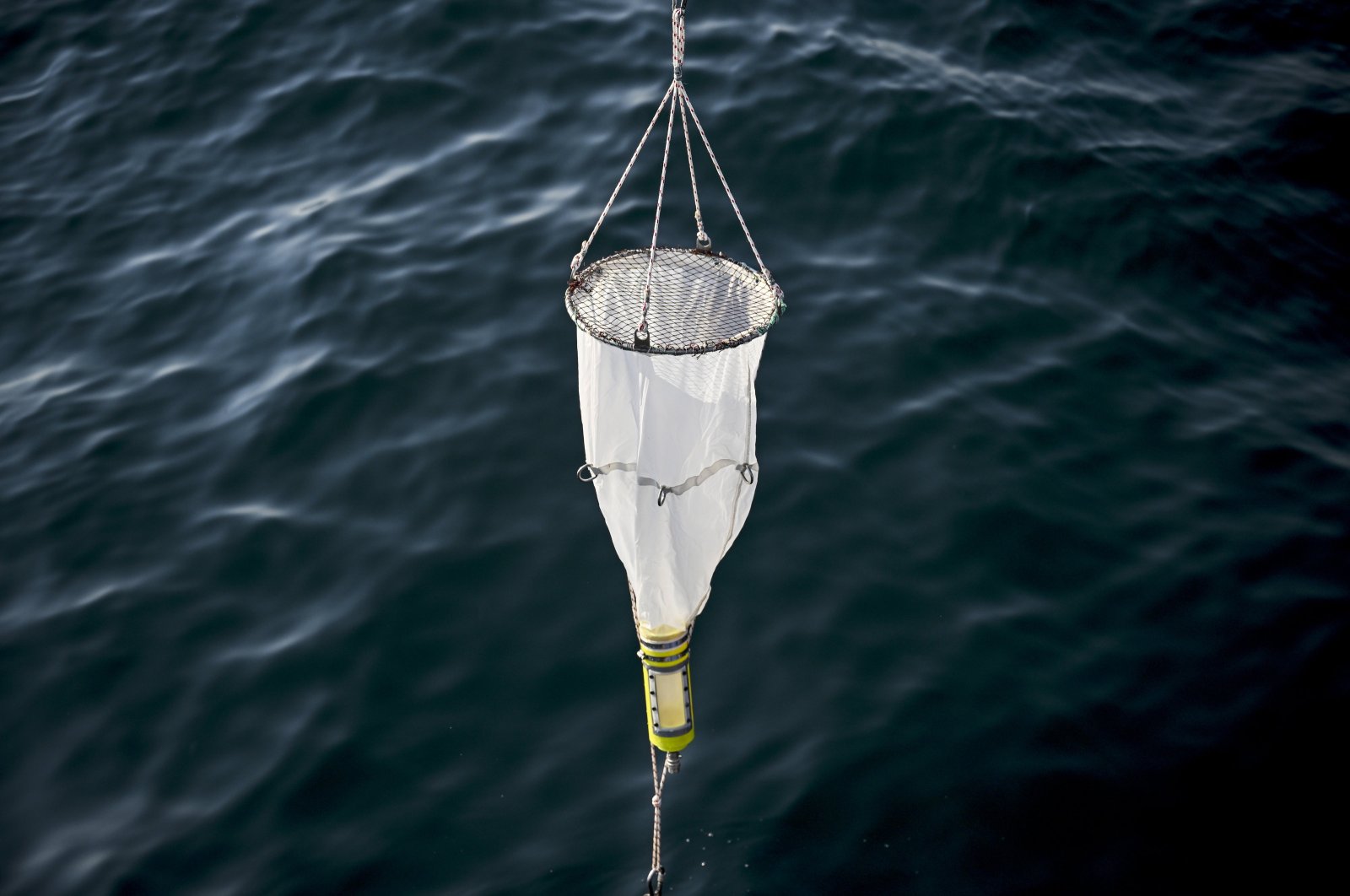
The Marmara Sea is warming rapidly, which can reshape the ecosystem within a remarkably short period and disrupt the entire ecological balance, affecting fish and other marine organisms
A team of scientists from the Istanbul University Marine Sciences and Management Institute embarked on a research expedition to investigate the state of the Marmara Sea, uncovering unsettling trends related to oxygen levels and temperature changes that could dramatically impact the local ecosystem.
In an interview with Anadolu Agency (AA), professor Cem Gazioğlu, the director of Istanbul University's Institute of Marine Sciences and Management, disclosed the initial findings of their research. The team conducted extensive sampling from nearly 100 locations across the Marmara Sea, focusing on physical, chemical and biological aspects. Gazioğlu hinted at the potential installation of specialized buoy systems at select points to continuously collect data for further analysis.
Gazioğlu emphasized: "Our investigations have unveiled concerning developments in the upper layers of the Marmara Sea. Oxygen levels in this region have been declining as oxygen consumption rates remain high. This is a trend we cannot afford to see. Furthermore, there are alarming findings related to oxygen values in the lower layers, representing the Mediterranean water influence."
He pointed out that while biological activities in the upper sea layers were expected to boost oxygen levels, environmental factors appeared to limit this phenomenon. "This may indicate either a positive aspect or the possibility of certain organisms excessively consuming the available chemicals, which in turn depletes oxygen levels. This consumption primarily occurs in the upper layers and becomes increasingly critical as we descend toward Mediterranean waters," Gazioğlu outlined.
The unusual late onset and intensity of this year's rising air temperatures, combined with the Marmara Sea's failure to cool like the Black Sea, were also addressed by Gazioğlu. He noted that these temperature fluctuations were particularly pronounced within the first 25 meters of the sea.
Despite these challenges, Gazioğlu stressed the necessity of continued and heightened measures to address the deteriorating conditions in the sea. He acknowledged that implementing effective solutions would prove to be a complex task.
Fuat Dursun, a faculty member at the Istanbul University Institute of Marine Sciences and Management, corroborated the findings and underscored the vital role oxygen plays in sustaining marine life. "Phytoplankton, microscopic creatures, are the primary producers of oxygen in the seas. Our research involves studying these organisms at various depths to identify their species. Decreased oxygen levels can disrupt the entire ecological balance, affecting fish and other marine life forms, including mammals," Dursun explained.
Dursun also discussed the emergence of invasive alien species, a growing concern driven by climate change and global warming. These adaptable species, often introduced through ship ballast waters, can potentially alter entire ecosystems. "Temperature changes can accelerate their growth and, in turn, expedite ecosystem transformation. The Marmara Sea is warming rapidly, marking a phenomenon capable of reshaping the ecosystem within a remarkably short period. The increasing season-to-season fluctuations exert additional pressure on species diversity," Dursun warned.
The continuous efforts by scientists to unravel the complex dynamics affecting the Marmara Sea show us to take urgent action to safeguard this fragile marine environment from further degradation.
